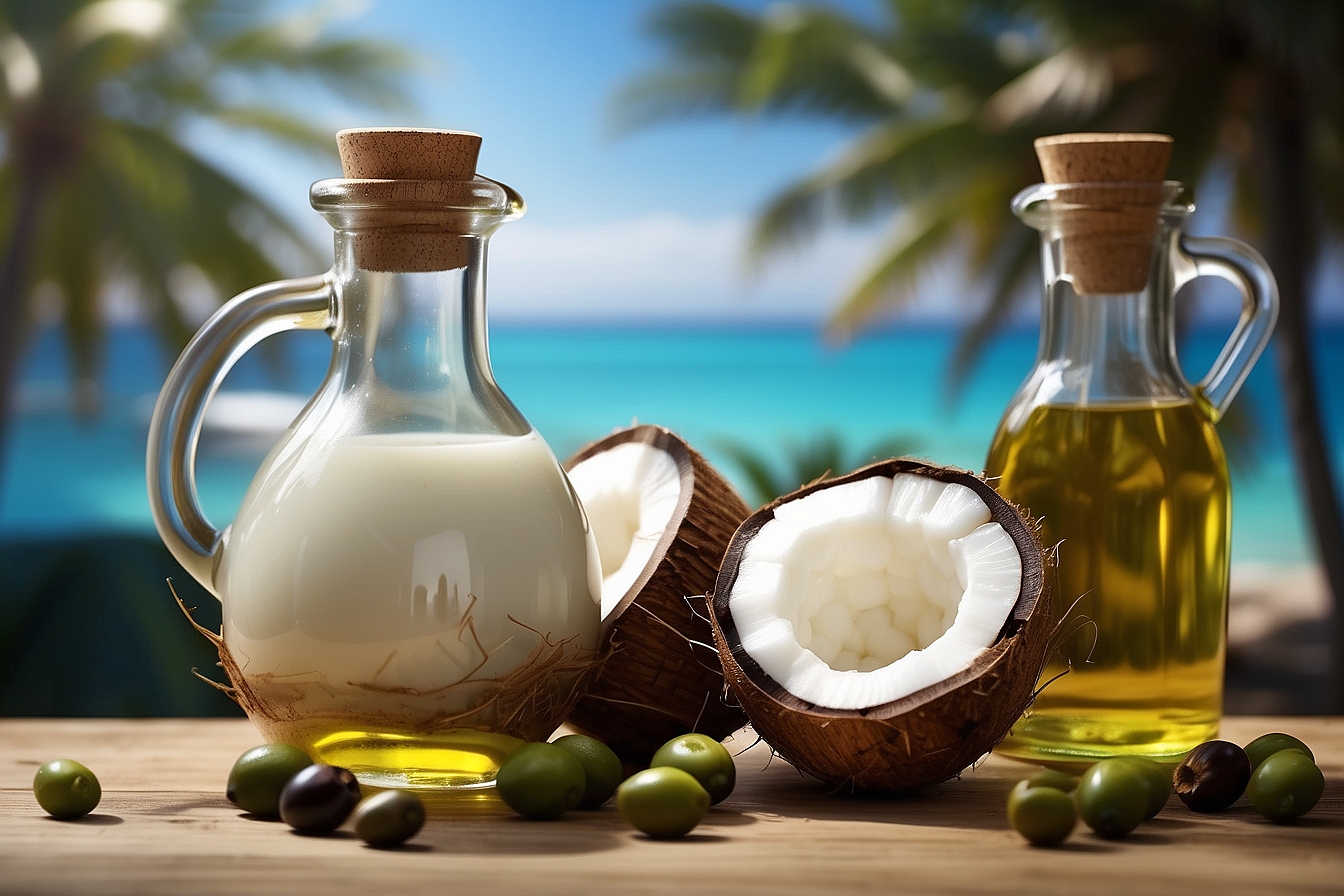Choosing Between Coconut Oil and Olive Oil
Coconut oil and olive oil are two popular options for cooking and skincare, each with unique properties and potential health benefits. Understanding their differences is essential for informed decision-making. In this article, we’ll compare these oils, exploring their nutritional profiles, culinary uses, and impacts on health and well-being.
Nutritional Comparison
Coconut oil is high in saturated fats and solid at room temperature, containing medium-chain triglycerides (MCTs) for quick energy. On the other hand, olive oil is rich in heart-healthy monounsaturated fats, with antioxidants and anti-inflammatory properties. While coconut oil is suited for high-heat cooking due to its high smoke point, olive oil is better for dressings and low-heat cooking.
Smoke Point Showdown
Coconut oil has a smoke point around 350°F, ideal for light sautéing and baking, while olive oil ranges from 375°F to 470°F, suitable for various cooking techniques. Olive oil’s higher smoke point makes it versatile for roasting vegetables, pan-searing meats, and shallow frying. Both oils offer distinct flavors and potential health benefits when used appropriately in cooking.
Skin and Hair Benefits
Coconut oil moisturizes and has antimicrobial properties, beneficial for dry skin and promoting hair growth. Olive oil hydrates, protects the skin from environmental damage, and acts as a deep conditioner for hair repair. Experimenting with both oils can help determine which best suits individual skincare and hair care needs.
Environmental Impact
Coconut oil comes from coconut palms, known for their sustainability and ability to thrive in diverse ecosystems with less water requirement compared to olive trees. While olive oil production supports biodiversity, it often requires more water and land. Choosing eco-friendly alternatives like coconut and olive oil is essential for minimizing environmental impact.
Heart Health Debate
Coconut oil’s medium-chain fatty acids and olive oil’s monounsaturated fats have sparked debates regarding their effects on heart health. While both have their proponents, understanding their impacts on cholesterol levels and overall cardiovascular health is crucial. Scientific evidence and expert opinions can guide informed decisions for heart-healthy oil choices.
Summary
Understanding the differences between coconut oil and olive oil empowers individuals to make informed choices for cooking, skincare, and overall health. Both oils offer unique benefits and can be incorporated into lifestyle based on individual preferences and needs. Whether opting for versatile coconut oil or heart-healthy olive oil, moderation and experimentation are key. Utilizing these natural oils can enhance culinary creations, skincare routines, and contribute to overall well-being.



